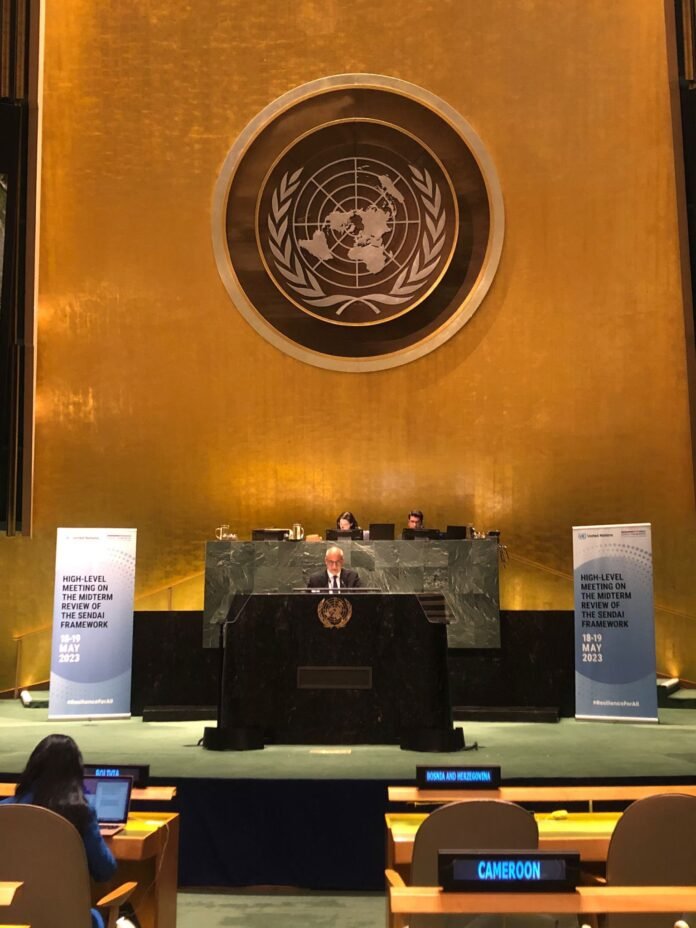NEW YORK, May 18 – With thoughts directed towards the victims of the floods in Emilia Romagna, the head of the Italian Department of Civil Protection, Fabrizio Curcio, addressed today the General Assembly at the High Level Meeting on Disaster Risk Reduction (DRR).
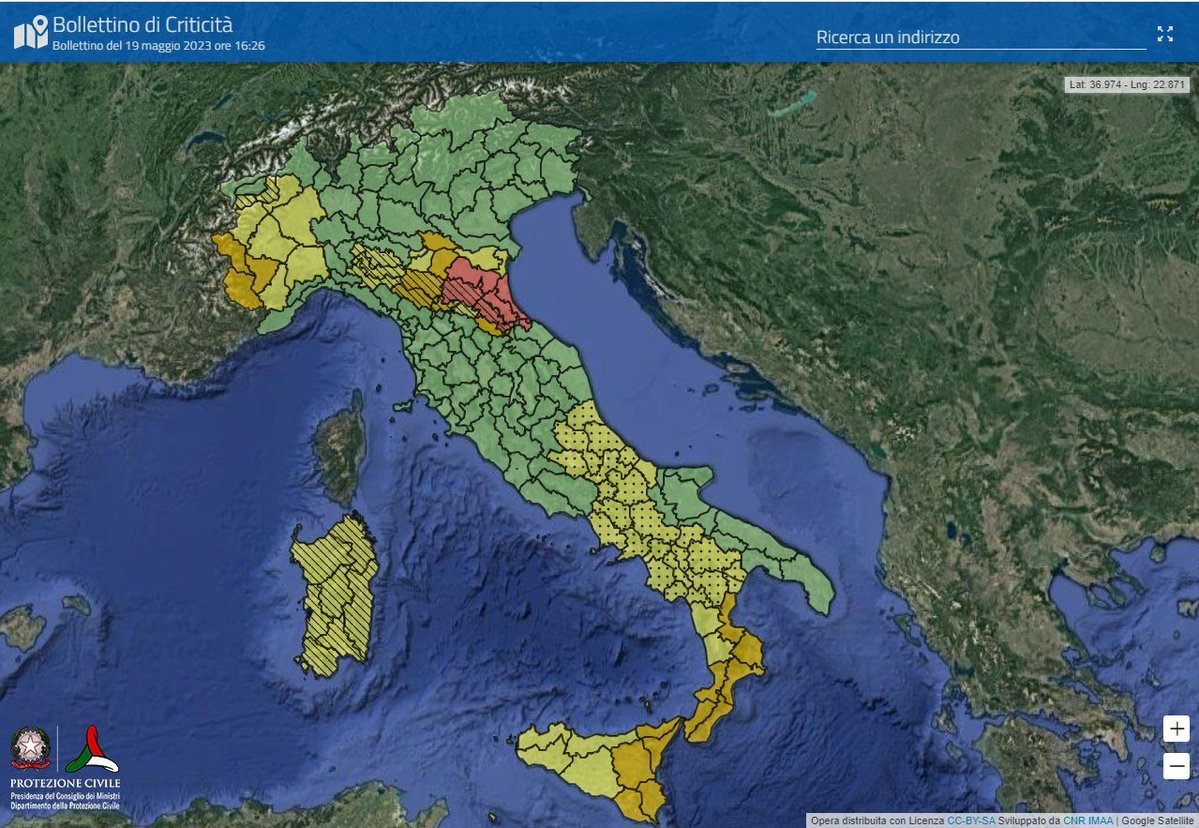 At the beginning of his speech, Curcio mentioned this week disaster in Northern Italy, the lives lost, but later on, he also highlighted the many lives saved thanks to DRR policies, including prevention. Italy has a prominent role at the UN in the field of disaster risk mitigation, being the second-largest partner of the relevant UN entity, UNDRR.
At the beginning of his speech, Curcio mentioned this week disaster in Northern Italy, the lives lost, but later on, he also highlighted the many lives saved thanks to DRR policies, including prevention. Italy has a prominent role at the UN in the field of disaster risk mitigation, being the second-largest partner of the relevant UN entity, UNDRR.
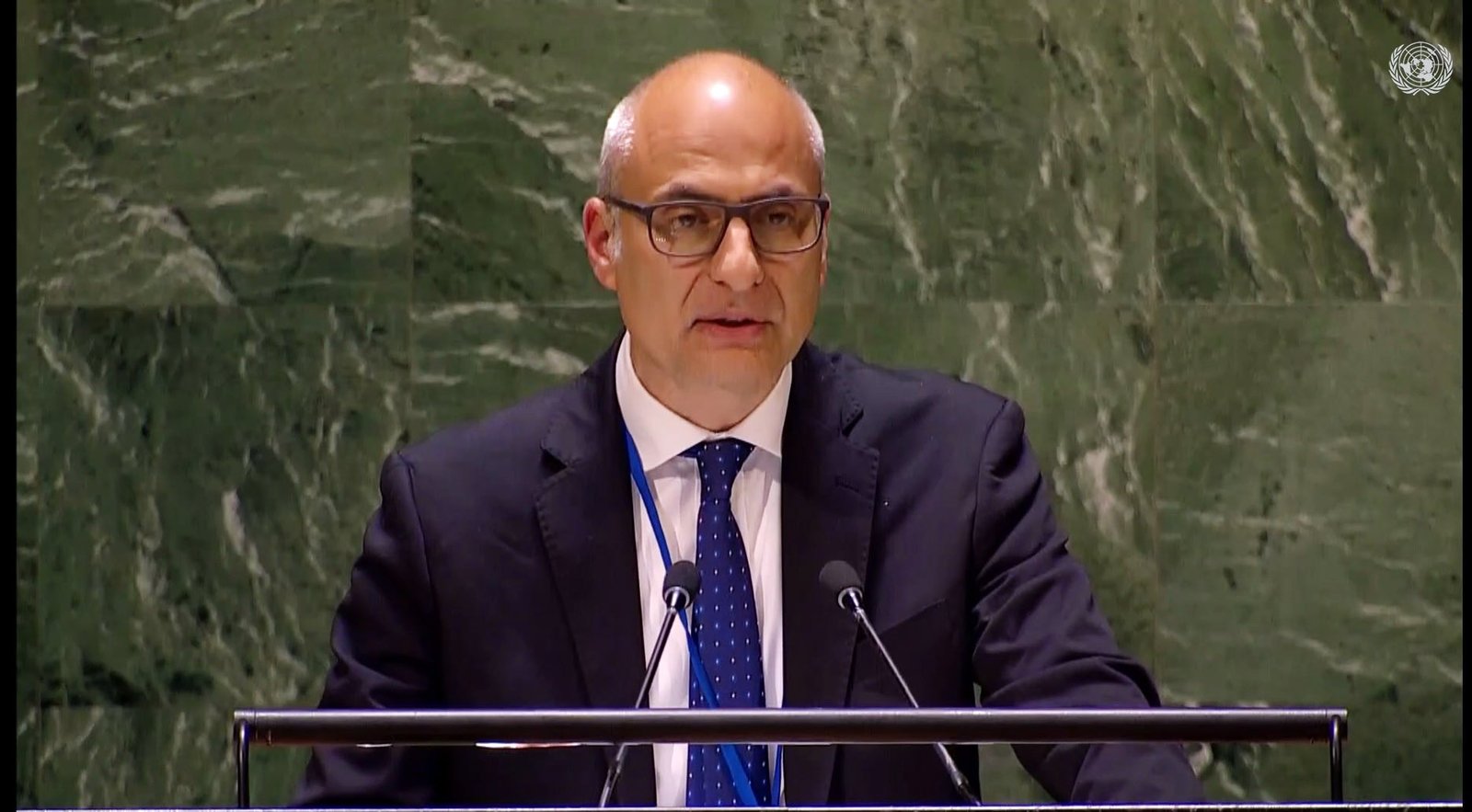 Curcio noted that in risk prevention strategies and actions, it is essential to involve all public and private actors in order to agree on short, medium, and long-term objectives. In this regard, the relationship between the decision-making process and science, with a multi-risk approach, is crucial, especially when it comes to prevention and understanding disaster risk.
Curcio noted that in risk prevention strategies and actions, it is essential to involve all public and private actors in order to agree on short, medium, and long-term objectives. In this regard, the relationship between the decision-making process and science, with a multi-risk approach, is crucial, especially when it comes to prevention and understanding disaster risk.
The head of the Civil Protection emphasized Italy’s thirty years of experience in this field: “In this context, Italy has developed effective early warning systems for multiple hazards over the years. While we unfortunately count the victims of the recent floods, the impact of prevention in terms of human lives saved is, on the other hand, incalculable.”
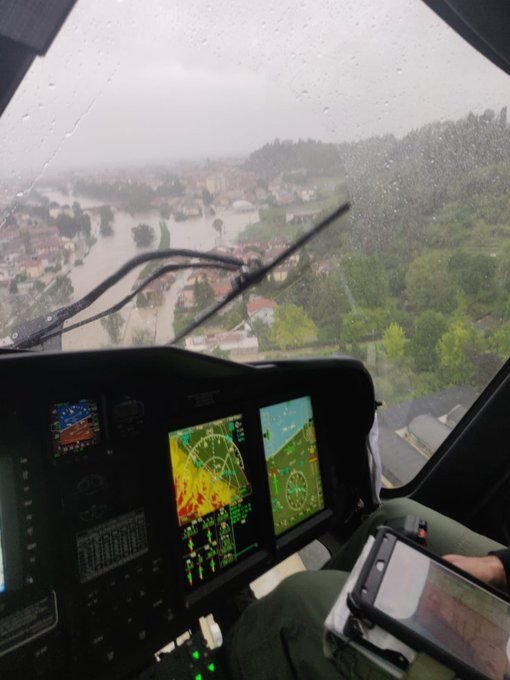 Curcio also spoke about the importance of effective communication to inform the population about disaster scenarios and risks in their territories: “We have been doing this for years, actively involving local volunteers.” Regarding investments in active risk reduction policies, Italy has adopted regulations since 2010 to promote seismic prevention and actions to reduce vulnerability.
Curcio also spoke about the importance of effective communication to inform the population about disaster scenarios and risks in their territories: “We have been doing this for years, actively involving local volunteers.” Regarding investments in active risk reduction policies, Italy has adopted regulations since 2010 to promote seismic prevention and actions to reduce vulnerability.
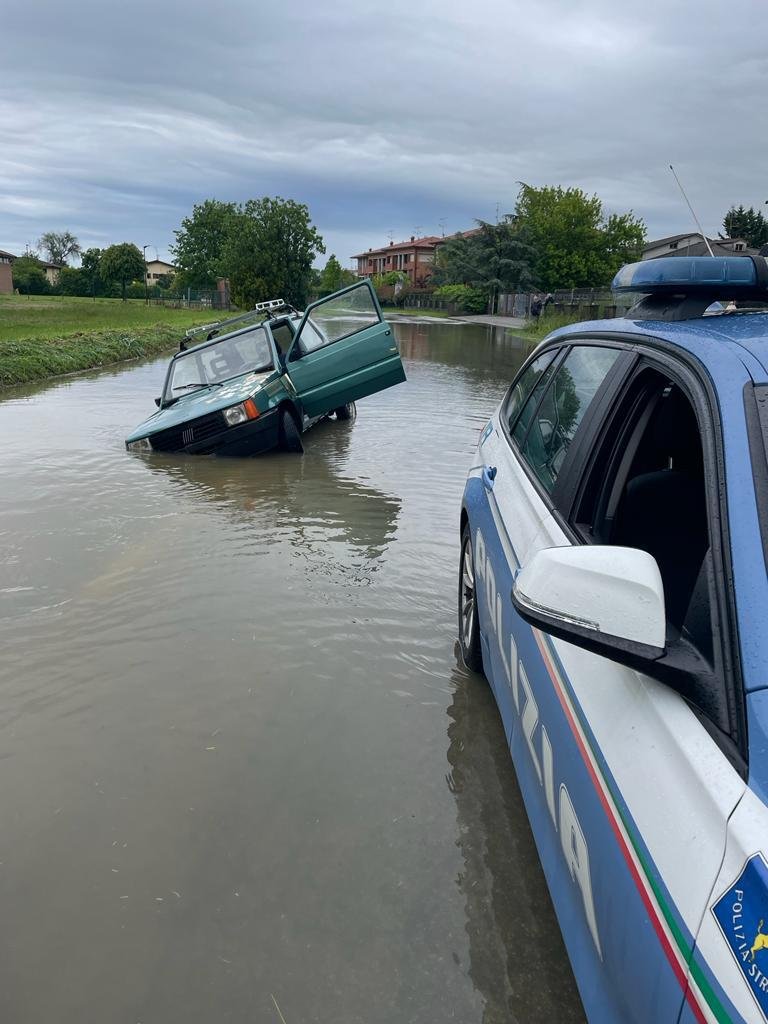 It is evident that the volume of investments needed to have a real impact on risk reduction is too high to be covered solely by public financial resources. Private capital must also be involved, noted the head of the Civil Protection.
It is evident that the volume of investments needed to have a real impact on risk reduction is too high to be covered solely by public financial resources. Private capital must also be involved, noted the head of the Civil Protection.
Italy is also strongly engaged on the international front: “Prevention, inclusiveness, ownership, and innovation are our keywords,” said Curcio, listing efforts focused on strengthening local capacities through training and effective early warning and early action systems – in line with the global “Early Warning for All” initiative launched last year by the UN Secretary-General Antonio Guterres. (@OnuItalia)

